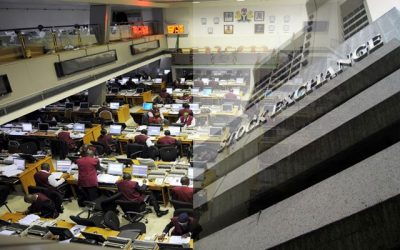MTN Nigeria plans to raise about $500 million from the sale of shares during the first half of the year.
The move is to enable the company in fulfilling the terms of a deal struck with the Nigeria to settle a record fine imposed on it in 2016 over SIM registration default.
Standard Bank Group Ltd. and Citigroup Inc. have been advising Africa’s largest company on the disposal of as much as 30 per cent of unit on the Nigerian Stock Exchange.
The details of the transaction have not been made public.
According to Bloomberg, most of the shares will be sold to local institutions and individuals, though foreign investors could be brought in to ensure the process is a success, one of the people said.
Discussions are ongoing and a final decision hasn’t been made, they said.
Spokespeople for MTN and Citigroup in Johannesburg didn’t comment.
Standard Bank didn’t immediately respond to calls seeking comment.
MTN agreed to list the Nigerian unit as part of a June 2016 agreement to pay a $1 billion fine for missing a deadline to disconnect unregistered subscribers amid a security crackdown.
The penalty, originally set at $5.2 billion, led to the resignation of the Johannesburg-based company’s then chief executive officer, a first ever full-year loss and a slump in the share price that’s yet to be clawed back.
The stock extended gains on Wednesday, and traded 4.5 percent higher at 128.83 rand as of the close in Johannesburg, giving a market value of 243 billion rand ($20 billion).
If successful, the Lagos share sale will be the biggest on the Nigerian Stock Exchange after Starcomms Plc, which raised $796 million when it listed in 2008, according to data compiled by Bloomberg.
MTN with over 50 million subscribers as of end September, slumped to a loss in 2016 as it absorbed the financial impact of the fine, though said last month it returned to profit the following year.
Nigeria and other sub-Saharan African governments are trying to gain more from international mobile-phone operators taking advantage of rising smartphone use and faster data speeds.
Read more: Bloomberg















